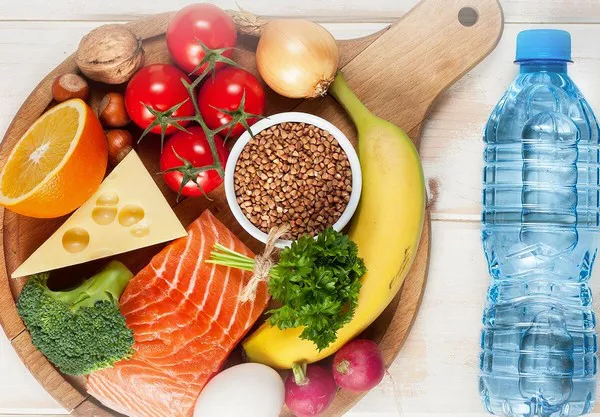In the intricate landscape of nutrition, finding foods that offer a rich source of protein without the accompanying fat can be a valuable pursuit. Whether you’re aiming to meet specific dietary goals, managing weight, or simply seeking a low-fat protein option, understanding which foods align with this criteria is essential. This comprehensive guide delves into the realm of foods that provide protein without the addition of fat, exploring plant-based and animal-based options, and shedding light on the nutritional implications of incorporating these foods into your diet.
Egg Whites
Egg whites stand out as a prime example of a food that delivers protein without the burden of fat. While whole eggs contain both protein and fat, the whites are virtually fat-free and packed with high-quality protein. One large egg white offers around 3.6 grams of protein, making it an excellent choice for those looking to increase protein intake without introducing additional fat. Whether consumed on their own or incorporated into dishes like omelets or protein shakes, egg whites are a versatile and low-fat protein source.
Skinless Chicken Breast
When it comes to animal-based protein options with minimal fat content, skinless chicken breast takes center stage. Renowned for its lean profile, chicken breast provides a substantial amount of protein per serving without the added fats found in skin and dark meat. Grilled, baked, or poached, skinless chicken breast can be a versatile addition to various dishes, offering a blank canvas for flavor experimentation while maintaining a low-fat, high-protein nutritional profile.
Greek Yogurt
Greek yogurt stands out as a dairy product that boasts a favorable protein-to-fat ratio. While traditional yogurt may contain varying levels of fat, Greek yogurt is strained to remove excess whey, resulting in a thicker consistency and a higher protein content. Opting for low-fat or fat-free varieties ensures a protein-rich dairy option with minimal fat. Greek yogurt serves as an excellent base for breakfast parfaits, smoothies, or a standalone snack, offering a creamy texture without compromising on protein content.
Tofu
For those following a plant-based or vegetarian diet, tofu emerges as a protein-packed option with minimal fat. Tofu, made from soybeans, is not only versatile in its ability to absorb flavors but also rich in essential amino acids. It is available in various firmness levels, allowing for customization in texture and application. Tofu can be incorporated into savory dishes, stir-fries, or blended into smoothies, offering a plant-powered protein source that aligns with low-fat dietary goals.
Cottage Cheese
Cottage cheese is a dairy product that combines the goodness of protein with a relatively low-fat content. It is available in different fat percentages, with low-fat and fat-free options providing a higher protein-to-fat ratio. Cottage cheese can be enjoyed on its own or as a versatile ingredient in both sweet and savory dishes. Its curd-like texture and mild flavor make it an adaptable addition to salads, fruit bowls, or as a standalone snack for those seeking a protein boost with minimal fat.
Turkey
Similar to chicken breast, turkey is another poultry option that offers lean protein without excessive fat. Opting for lean cuts, such as turkey breast without the skin, ensures a favorable protein-to-fat balance. Turkey can be a centerpiece in meals ranging from sandwiches and wraps to salads and casseroles, providing a flavorful and nutrient-dense protein source for those mindful of their fat intake.
Seitan
Seitan, often referred to as wheat gluten, is a meat substitute that provides a notable protein content with minimal fat. Made from gluten, the protein-rich component of wheat, seitan has a chewy texture and a neutral taste, making it adaptable to various culinary applications. It can be seasoned, grilled, or sautéed to enhance its flavor profile. As a plant-based alternative to meat, seitan offers a unique way to incorporate protein into the diet without introducing significant amounts of fat.
Lentils
Lentils, a staple in many cuisines, stand out as a plant-based protein source that is not only rich in fiber but also low in fat. With a diverse range of varieties, including green, brown, and red, lentils can be incorporated into soups, stews, salads, and side dishes. Their versatility and nutritional profile make them an excellent choice for those seeking a protein boost from plant sources while minimizing fat intake.
White Fish
Certain varieties of white fish, such as cod, haddock, and tilapia, offer a lean protein profile with minimal fat content. Baking, grilling, or poaching white fish allows for a flavorful preparation without relying on added fats. This makes white fish a suitable option for those aiming to increase protein intake while maintaining a diet low in saturated fats. Including white fish in a balanced meal plan adds variety to protein sources and aligns with heart-healthy dietary recommendations.
Edamame
Edamame, young soybeans still in their pods, are a nutrient-dense snack that provides plant-based protein with minimal fat. Whether steamed and sprinkled with salt or added to salads and stir-fries, edamame offers a satisfying and nutritious option for those seeking a protein-rich snack or side dish. As a whole food, edamame not only contributes protein but also offers essential vitamins and minerals, making it a wholesome addition to a balanced diet.
Quinoa
Quinoa, often referred to as a “complete protein,” is a grain that stands out for its impressive protein content and minimal fat. As an excellent plant-based source of protein, quinoa contains all nine essential amino acids, making it a valuable inclusion in vegetarian and vegan diets. Quinoa’s versatility allows it to be used as a base for salads, a side dish, or even as a substitute for rice in various recipes, providing a nutrient-rich and protein-packed alternative with minimal fat.
Soy Milk
Soy milk, derived from soybeans, is a plant-based beverage that offers protein without the saturated fat found in some animal-based options. Opting for unsweetened and fortified varieties ensures a higher protein content while minimizing added sugars and fats. Soy milk can be used as a dairy-free alternative in coffee, cereals, smoothies, or cooking, providing a versatile and protein-rich option for those seeking plant-based alternatives.
Shrimp
Shrimp is a seafood option that delivers a significant protein punch with minimal fat. Shrimp can be grilled, sautéed, or added to various dishes such as stir-fries, pastas, or salads. Its versatility in the kitchen allows for a range of flavorful preparations without relying on excessive fats. Including shrimp in a well-rounded diet provides a lean protein source along with essential nutrients like selenium and vitamin B12.
Plant-Based Protein Powders
For those looking to supplement their protein intake without the added fat content, plant-based protein powders present a convenient option. Powders derived from sources such as pea protein, brown rice protein, or hemp protein offer a concentrated protein source that can be easily added to smoothies, shakes, or recipes. Opting for varieties without added sugars or fats ensures a targeted protein boost without compromising dietary goals.
Conclusion
In the pursuit of foods that provide protein without the accompaniment of fat, a diverse array of options exists, catering to both plant-based and animal-based preferences. From egg whites and skinless chicken breast to lentils and soy milk, the choices are abundant and versatile. Crafting a diet that balances protein intake with fat considerations involves thoughtful selection, preparation methods, and an awareness of individual dietary goals. Whether aiming for weight management, muscle building, or overall health, incorporating these low-fat, high-protein foods into a well-rounded diet contributes to a nutritional tapestry that supports diverse wellness objectives.
[inline_related_posts title=”You Might Be Interested In” title_align=”left” style=”list” number=”6″ align=”none” ids=”3850,3848,3846″ by=”categories” orderby=”rand” order=”DESC” hide_thumb=”no” thumb_right=”no” views=”no” date=”yes” grid_columns=”2″ post_type=”” tax=””]
































